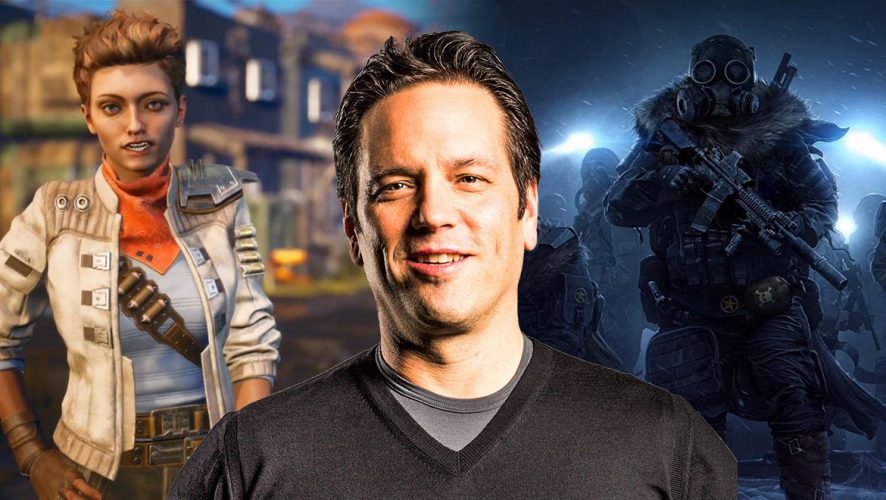Last year, Microsoft and Xbox flexed its spending power by acquiring thirteen previously independent game development studios to further its quest to establish itself as a gaming powerhouse (not that it already is, but just in case, you know).
Among some of those are the likes of Obsidian Entertainment, the guys who brought us role-playing heavyweights such as Fallout: New Vegas, Pillars of Eternity and its sequel Deadfire, and even the quirky-yet-charming South Park: The Stick of Truth, as well as inXile Entertainment, who developed the Wasteland strategy RPG franchise.
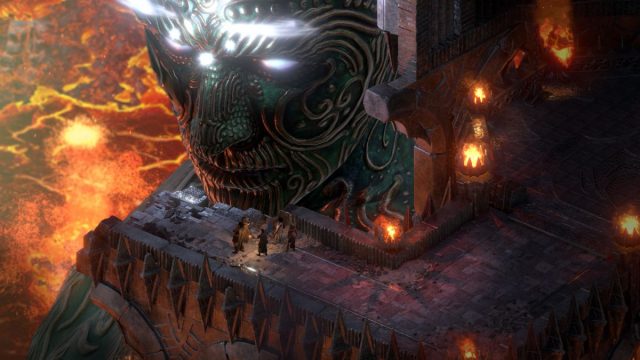
These titles are mostly revered for their respective studios’ brilliant execution on narrative and gameplay, especially due to the fact that they were largely independent at the time. However, with Microsoft buying these studios over, many a fan may raise an eyebrow or two over the longevity of these studios in the distant future. After all, it’s not unheard of that a larger studio chucks a smaller acquired one into the shredder once they’ve outlived their “usefulness” or ability to reap in revenue following a bad release (see EA on Visceral).
Earlier this week, PC Gamer sat down with Microsoft’s Gaming executive VP, Phil Spencer, on his take on the acquisition of these game studios, what his team has learnt from past experiences, and moving forward with the PC gaming line.
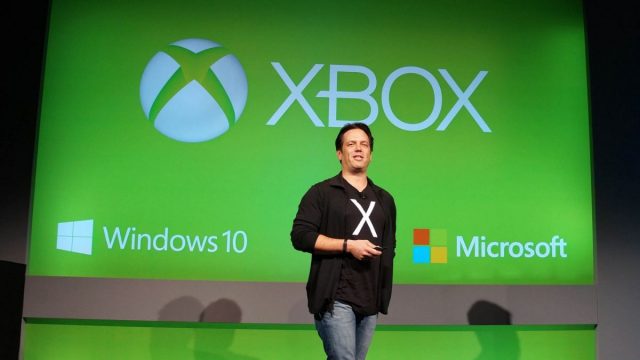
“We want to empower game creators to extend the reach of their games to the broadest global player base possible,” mused Spencer. “That said, we…[understand] that there are certain types of games that may be best experienced within a specific context, or with a specific input method (keyboard and mouse, controller, etc).”
“Obsidian, inXile and all our studios will have the resources to reach players on any device and we’ll support the decisions each studio makes regarding the platform and features that let them deliver the experience they want for gamers.”
Indeed, both Obsidian and inXile have professed their optimism on being acquired by Microsoft, in their own ways emphasising the increased opportunities to tackle larger projects. Here’s what Obsidian said following the announcement last year:
inXile’s Brian Fargo also addressed fans’ scepticism following their buying over by Microsoft:
I can understand the natural skepticism of seeing small companies bought, we've all seen some subsequently dismantled after.
Our deal with Microsoft allows InXile to grow and dream like never before. This is a wonderful thing for our future.
— Brian Fargo (@BrianFargo) November 12, 2018
There’s no mistake that words of praise are coming from these proverbial horses’ mouths. Microsoft seems to facilitate a space for these smaller studios to grow and expand to tackle more ambitious and larger-scale projects with more resources, funding, and (probably) more manpower.
Obsidian, for one, has benefited greatly from being under the wing of a giant such as Microsoft. While they enjoyed success following the launch of their two Pillars of Eternity titles, those were ultimately crowdfunded ones, which meant a slightly longer development time, had the funding not been so great. Their upcoming RPG shooter, The Outer Worlds, promises all the role-playing depth and stellar writing as seen in the aforementioned PoE games and Fallout: New Vegas, but with significantly higher production values and scope, with planets to explore, more NPC interactions, pacifist playthroughs, and more.
Likewise, inXile’s upcoming Wasteland 3 looks promising as well, with a larger setting, more complex gameplay mechanics, and an overall larger team working on the title. Fargo said in an interview with Eurogamer that Microsoft is not one to breathe down their developers’ necks.
“They’ve not once said ‘we’d really love you to do more of this or less of that’—that’s never been a conversation. Really, it’s going to be up to us, and very much us talking to our fans about the things they’d like to see. We’re not necessarily walking away from isometric [games] at all. There’s still some great things you can do with it that haven’t been done yet.”

As Spencer posits, Microsoft’s aim is not just to bring more Microsoft games to its fans, but more importantly to bring out quality by ensuring the most conducive environment to bring out the best of these game studios. and let them be them, essentially.
“We want each studio to retain their unique spirit and culture while feeling empowered by the collective resources they now have as a member of Xbox Games Studios and Microsoft. We’re here to help lift any of the distractions and challenges that have kept them from what they do best.
“The opportunity for collaboration and shared learning across our new and existing teams is potentially what’s most exciting to me. It’s been inspiring to hear stories already of how the incredible talents across these teams are reaching out to connect, share and learn from one another.”
While it all looks like a bed of roses, Microsoft is no stranger to fallouts (excuse the accidental pun) with studios in the past. Take, for example, Lionhead Studios. Hugely famous for its charming, story-heavy Fable fantasy RPG franchise which debuted in 2006 (around the same time Microsoft bought them over), Lionhead ultimately crashed and burned in 2016 after a series of poorly-executed games such as Fable 3, and the now-cancelled Fable Legends.
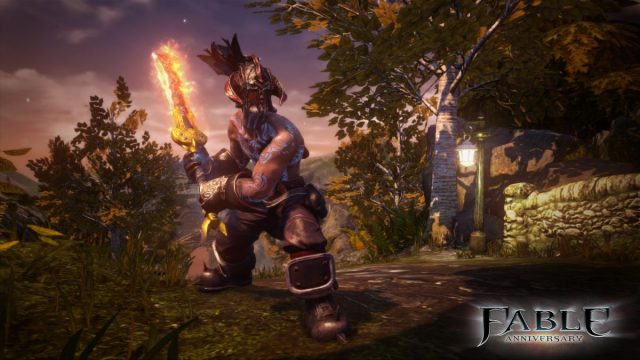
Spencer, however, insists that no love is lost for the Peter Molyneux-headed studio, and that these things are just learning points for Microsoft to take note moving forward.
“I’m very proud of the work that Microsoft and Lionhead did together on the Fable franchise. It is always an incredibly difficult decision to close a studio or cancel a game. In every one of our past studio additions we’ve learned from the experience, from aligning on goals ahead of acquisition, to decisions on whether to relocate teams and/or retain existing organizational structures. That learning and planning has paid off when I think of Rare (the developers of Sea of Thieves) and Mojang (the guys behind Minecraft).”
Aside from the questions raised about the longevity of the smaller studios, therein lies another nagging question: will the future games from these studios be made available on digital distributors other than the Microsoft Store? We already know that The Outer Worlds and Wasteland 3 will be present on Steam (especially after we learnt of the potential August release of the former), but what of future titles after those?
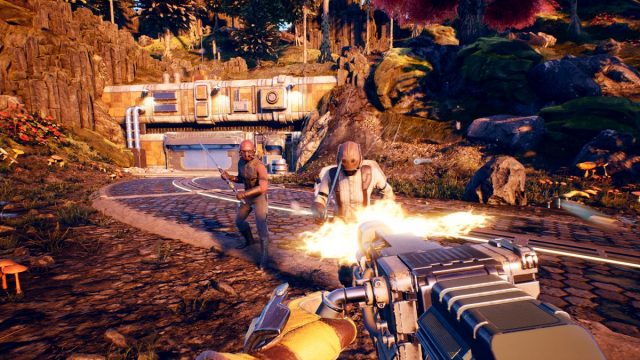
Many PC gamers have bemoaned the fact that a lot of Microsoft titles, such as the aforementioned Sea of Thieves, Forza Horizon 4 and Gears of War 4 have all been made exclusive to the Microsoft Store, leading to a lack of exposure to the larger PC gaming community due to this exclusivity. To this, Spencer responded that Microsoft’s “first priority is delivering a new Store experience for games that factors in all of our learnings from past challenges on the PC.”
Despite this, he and Microsoft are still considering the possibility of making future Microsoft games available for purchase on Steam and other platforms. No guarantees yet, though.
“While we are proud of our PC gaming heritage, we’ve made some mistakes along our journey. We know we have to move forward, informed by our past, with the unique wants, needs and challenges of the PC player at the center of decisions we make. I know we’ve talked quite a bit over time about what we want to deliver for the player on PC, but at E3 this year, and throughout 2019, you’ll begin to see where we’ve been investing to deliver across Store, services, in Windows and in great games. It’s just the beginning.”
With the new studios powering away with their new PC titles, as well as forming the development arms of the newly-rebranded Xbox Game Studios, one can expect not just quality PC gaming, but console ports of those promising-looking games as well.
Marion has a serious RPG addiction. Sometimes it bleeds into real life; he forgets to sleep because he thinks he has a Witcher’s body clock. Forgive him in advance if he suddenly blurts out terms such as “Mind Flayer” and “Magic Missile”, because never once does he stop thinking about his next Dungeons & Dragons game.

